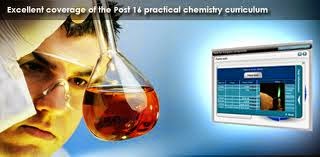QUANTITIES AND MASSES
Chemists have balances for determining mass in grams or
kilograms. They have graduated glassware for measuring the volumes of liquids
and gases. There is, however, no simple measuring instrument for determining
chemical amounts directly. Instead chemists first measure masses or volumes and
then calculate the chemical amount.
Masses of chemicals and amounts in moles.
The most direct way to find amount of substances to weigh it
on balance.
Amounts
of substances/mol =( Mass of substances/g)/ (molar mass / g ^ mol)
This
relationship gives rearrange to:
Mss
of substance/g = (amounts of substances/mol) *( molar mass / g ^mol)
NOTE:Include
the units in relationship and use them to check that the units on both sides
equal sign are consistent.
Quantities
of gases.
If
the temperature and pressure are fixed, then the volume of a gas depends only
on the amounts of gas in nmoles. In other words the volumes of a gas is
determined by the number of gas molecules present.
The
law applies so long as the molecules of a gas are so far apart that their
volume is insignificant compared to the volume of the gas and so long as the
intermolecular forces can be ignored. For many common gases these criteria
apply under normal laboratory conditions. Under conditions where the gas is
close liquefying the simple rules do not apply.
Avogadro's
law follows from the ideal gas conditions:
pV=nRT
( where,R is the gas constant )
If p
and T are constant, the volume is proportional to n, the amounts of gas in
moles.
The
molar volumes of a gas is the volume of 1 mole of the gas. when n=1
p=(RT/V)
substituting
in this relationship gives for the molar volumes of any gases which behaves
like an ideal gas. Two sets of conditions are commonly used for comparing
amounts of gases:
- For accurate work the quantities are calculated or standard temperature and pressure,s.t.p. The standard temperature for gases is 273 K and the standard pressure is 101.3 kPa(1 atmosphere). Under these conditions the molar volumes of gas is 22400 cm^3
- For approximate work, when making estimates under laboratory conditions it is often convenient to use the fact the molar volume of a gas at around 20 degree celsius and 1 atmosphere pressure is about 24000 cm^3.
Amount
of gas/ mol= (volume of gas/cm)/(molar volume/cm mol)
NOTE:Avogadro's
law states that the equal volumes of gases contain equal amount of gas
molecules, in moles, under the same conditions of temperature and pressure.
Quantities
in solution Chemists measure the concentration of solution in moles per litre:
concentration/mol/dm^3=
(amounts of solute/ mol )/ (volume of solution/ dm^3)
This
rearranges to give:
amount
of solute/mol= (volume of substances/dm^3) *( concentration /mol /Dm^3)
NOTE:
A litre is cubic decimetre, dm^3.


.jpg)
.jpg)
.jpg)

.jpg)
.jpg)
.jpg)
.jpg)


.jpg)

.jpg)
.jpg)


.jpg)
